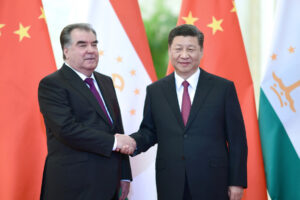The Republic of Namibia is understudying Ghana in the utilisation of oil proceeds for the benefit of its citizens.
In line with that, a delegation from the Upper House of Parliament of Namibia paid a courtesy call on the Public Interest and Accountability Committee (PIAC) in Accra to understand petroleum revenue management and its maximisation for the benefit of the people.
The delegation, which comprised Members of the Parliamentary Committee on Agriculture, Environment and Natural Resources, was led by the Vice-Chairman of the committee, Elder Filipe.
The visit was in accordance with Rule 159 of the National Council Standing Rules and Orders of the Namibian Parliament which mandates the committee to address matters pertaining to various sectors such as water, agriculture, land, environment, forest, mines and energy.
They were received by the Chairman of PIAC, Prof. Kwame Adom-Frimpong, and other members of the committee.
Namibia discovers hydrocarbons
The leader of the delegation, Mr Filipe, said Namibia had discovered hydrocarbons which needed to be exploited for the benefit of its citizens, hence the need to learn from countries such as Ghana which had a wealth of experience.
He said there were plans to establish an accountability committee such as the PIAC in Namibia to ensure that revenues from petroleum resources were managed and utilised effectively to avoid a resource curse.
Mr Filipe observed that Ghana had been progressive in the management of its petroleum revenues through the promulgation of laws and establishment of necessary institutions to govern operations in the sector.
This was contained in a press statement release by PIAC in Accra.
Prof. Adom-Frimpong said that the committee played a key role within the petroleum revenue management space.
He urged the leadership of Namibia to ensure there was secure funding for an accountability committee they intended to set up to help facilitate its operation.
Recounting the establishment of PIAC in 2011, Prof. Adom-Frimpong said there was no reliable source of funding for the committee in its formative years, and that they had to rely on funds from donor partners that were supplemented by allocations from the Ministry of Finance for its activities.
He said it was not until the Petroleum Revenue Management Act (PRMA) 2011, Act 815 was amended in 2015, that a permanent source of funding was secured for the committee.
The chairman expressed the committee’s willingness to provide technical support for its Namibian counterpart to ensure transparency and accountability in the management of their natural resources.
Source : BUSINESSGHANA
















